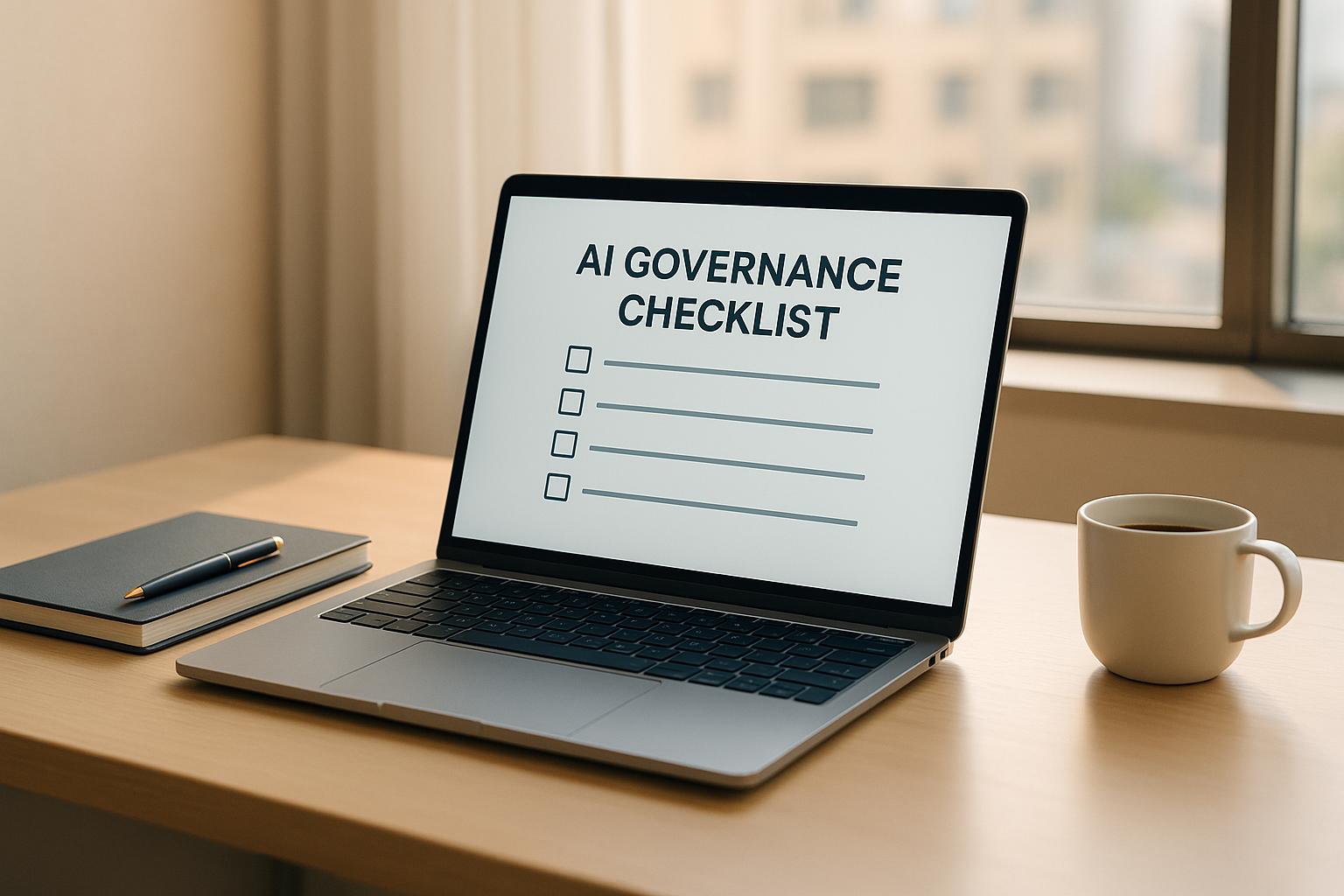
आज के तेज़-तर्रार डिजिटल परिदृश्य में, आर्टिफिशियल इंटेलिजेंस संगठनों के संचालन के तरीके को बदल रहा है, प्रक्रियाओं को सुव्यवस्थित करने से लेकर निर्णय लेने को बढ़ाने तक। लेकिन बड़ी ताकत के साथ बड़ी ज़िम्मेदारी आती है। यह सुनिश्चित करना कि AI सिस्टम का नैतिक रूप से और नियमों के अनुरूप उपयोग किया जाता है, अब वैकल्पिक नहीं है—यह बहुत जरूरी है। यहीं से जिम्मेदार AI परिनियोजन के लिए एक ठोस ढांचा सामने आता है, जो व्यवसायों, गैर-लाभकारी संगठनों और सरकारी निकायों को विश्वास और जवाबदेही को प्राथमिकता देने के लिए मार्गदर्शन करता है।
AI को एकीकृत करते समय हर संगठन को अनोखी चुनौतियों का सामना करना पड़ता है। एक कॉर्पोरेट इकाई शेयरधारकों की अपेक्षाओं और डेटा सुरक्षा के साथ संघर्ष कर सकती है, जबकि एक गैर-लाभकारी संस्था दानदाताओं के साथ पारदर्शिता पर ध्यान केंद्रित कर सकती है। इस बीच, सरकारी एजेंसियां अक्सर सार्वजनिक जांच और सख्त कानूनी जनादेश के साथ खिलवाड़ करती हैं। संदर्भ चाहे जो भी हो, दिशानिर्देशों का एक स्पष्ट सेट होने से पूर्वाग्रह या गोपनीयता भंग जैसे जोखिमों को कम करने में मदद मिलती है। AI नैतिकता के लिए एक अनुकूलित दृष्टिकोण यह सुनिश्चित करता है कि आप न केवल बॉक्स चेक कर रहे हैं, बल्कि अपने मिशन और कार्यान्वयन के चरण से संबंधित वास्तविक दुनिया की चिंताओं को दूर कर रहे हैं।
जिम्मेदार प्रौद्योगिकी उपयोग की दिशा में पहला कदम उठाना कठिन नहीं है। मुख्य सिद्धांतों पर ध्यान केंद्रित करके—स्पष्ट भूमिकाएं, नियमित ऑडिट और मजबूत डेटा सुरक्षा के बारे में सोचें—आप एक ऐसा सिस्टम बना सकते हैं जो सभी को लाभ पहुंचाए। नैतिक प्रथाओं का समर्थन करने के लिए डिज़ाइन किए गए टूल इस यात्रा को आसान बनाते हैं, जिससे आपको नवाचार को ईमानदारी के साथ संरेखित करने में मदद मिलती है।
यह टूल किसी संगठन के भीतर AI को लागू करने में शामिल किसी भी व्यक्ति के लिए डिज़ाइन किया गया है, चाहे आप तकनीकी नेतृत्व, अनुपालन अधिकारी या कार्यकारी हों। यह उन निगमों, गैर-लाभकारी संस्थाओं और सरकारी एजेंसियों के लिए विशेष रूप से मददगार है जो यह सुनिश्चित करना चाहते हैं कि उनके AI सिस्टम नैतिक मानकों और कानूनी आवश्यकताओं के अनुरूप हों। यदि आप अनिश्चित हैं कि AI गवर्नेंस के साथ कहां से शुरुआत करें, तो यह चेकलिस्ट आपको आपके विशिष्ट संदर्भ के अनुरूप एक व्यावहारिक रोडमैप प्रदान करती है।
हमने इस टूल को दो प्रमुख कारकों पर विचार करने के लिए बनाया है: आप किस प्रकार के संगठन का हिस्सा हैं और आपकी AI यात्रा का चरण। उदाहरण के लिए, योजना के चरण में एक सरकारी एजेंसी को सार्वजनिक पारदर्शिता पर केंद्रित आइटम मिल सकते हैं, जबकि सक्रिय उपयोग में आने वाले निगम को चल रहे ऑडिट पर अधिक जानकारी मिल सकती है। इन विवरणों को इनपुट करके, आपको 8-12 प्राथमिकताओं की सूची मिलेगी, जो आपकी विशिष्ट ज़रूरतों से मेल खाती हैं, जिससे चीज़ें प्रासंगिक और कार्रवाई योग्य रहेंगी।
हालांकि हमारी चेकलिस्ट एक शानदार शुरुआती बिंदु है, लेकिन यह कानूनी या विशेषज्ञ सलाह का विकल्प नहीं है। इसमें व्यापक रूप से स्वीकृत सर्वोत्तम प्रथाओं के आधार पर जवाबदेही, डेटा गोपनीयता और पारदर्शिता जैसे महत्वपूर्ण क्षेत्र शामिल हैं। हालांकि, क्षेत्र और उद्योग के अनुसार नियम अलग-अलग होते हैं, इसलिए मैं GDPR या CCPA जैसे विशिष्ट कानूनों को हल करने के लिए अनुपालन विशेषज्ञ से परामर्श करने की सलाह दूंगा। इस टूल को आगे बढ़ने के लिए अपनी नींव के रूप में सोचें!
{” @context “:” https://schema.org","@type":"FAQPage","mainEntity":[{"@type":"Question","name":"Who को इस AI गवर्नेंस चेकलिस्ट का उपयोग करना चाहिए?” , “स्वीकृत उत्तर”: {” @type “:” उत्तर”, “text”:” <p>यह टूल किसी संगठन के भीतर AI को लागू करने में शामिल किसी भी व्यक्ति के लिए डिज़ाइन किया गया है, चाहे आप तकनीकी नेतृत्व, अनुपालन अधिकारी या कार्यकारी हों। यह उन निगमों, गैर-लाभकारी संस्थाओं और सरकारी एजेंसियों के लिए विशेष रूप से मददगार है जो यह सुनिश्चित करना चाहते हैं कि उनके AI सिस्टम नैतिक मानकों और कानूनी आवश्यकताओं के अनुरूप हों। यदि आप अनिश्चित हैं कि AI गवर्नेंस के साथ कहां से शुरुआत करें, तो यह चेकलिस्ट आपको आपके विशिष्ट संदर्भ के अनुरूप एक व्यावहारिक रोडमैप प्रदान करती</p> है। “}}, {” @type “:" Question”, "name”: "चेकलिस्ट मेरे संगठन के अनुकूल कैसे होती है?” , “स्वीकृत उत्तर”: {” @type “:" उत्तर”, “text”:” <p>हमने दो प्रमुख कारकों पर विचार करने के लिए यह टूल बनाया है: आप किस प्रकार के संगठन का हिस्सा हैं और आपकी AI यात्रा का चरण। उदाहरण के लिए, योजना के चरण में एक सरकारी एजेंसी को सार्वजनिक पारदर्शिता पर केंद्रित आइटम मिल सकते हैं, जबकि सक्रिय उपयोग में रहने वाले निगम को चल रहे ऑडिट पर अधिक जानकारी मिल सकती है। इन विवरणों को इनपुट करके, आपको 8-12 प्राथमिकताओं की सूची मिलेगी, जो आपकी विशिष्ट ज़रूरतों से मेल खाती हैं, जिससे चीज़ें</p> प्रासंगिक और कार्रवाई योग्य रहेंगी। “}}, {” @type “:" Question”, "name”: "क्या यह चेकलिस्ट पूर्ण AI अनुपालन सुनिश्चित करने के लिए पर्याप्त है?” , “स्वीकृत उत्तर”: {” @type “:" उत्तर”, “text”:” <p>हालांकि हमारी चेकलिस्ट एक शानदार शुरुआती बिंदु है, लेकिन यह कानूनी या विशेषज्ञ सलाह का विकल्प नहीं है। इसमें व्यापक रूप से स्वीकृत सर्वोत्तम प्रथाओं के आधार पर जवाबदेही, डेटा गोपनीयता और पारदर्शिता जैसे महत्वपूर्ण क्षेत्र शामिल हैं। हालांकि, क्षेत्र और उद्योग के अनुसार नियम अलग-अलग होते हैं, इसलिए मैं GDPR या CCPA जैसे विशिष्ट कानूनों को हल करने के लिए अनुपालन विशेषज्ञ से परामर्श करने की सलाह दूंगा। इस टूल को आगे बढ़ने के लिए अपनी नींव के रूप में सोचें</p>! “}}]}

